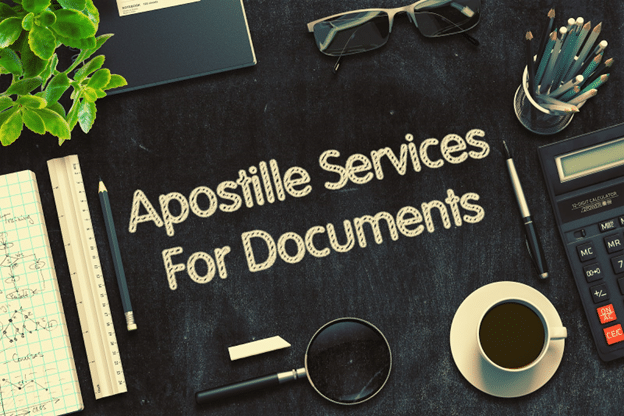Comprehending the Significance of Apostille Qualification and Why It Is Crucial for Legal Papers
Among the numerous systems readily available for this purpose, apostille qualification stands out as a structured and generally identified method. Comprehending the intricacies and implications of apostille accreditation on lawful records is necessary for people and organizations engaging in cross-border activities.
The Interpretation of Apostille Certification
Apostille certification is a specialized form of verification that validates the authenticity of a lawful file for worldwide use. This certification is important for guaranteeing that documents originating in one nation are recognized as legitimate in one more, simplifying the procedure of cross-border deals, lawful procedures, or personal issues like marriage or adoption. The Hague Apostille Convention of 1961 established the structure for this streamlined certification process amongst taking part nations.
To get an apostille certification, the designated authority in the paper's nation of origin should validate the file's authenticity prior to attaching the apostille. Once connected, the apostille makes certain that the document will be accepted as legitimate in any kind of various other country that is part of the Apostille Convention, without the need for additional qualification.
Advantages of Apostille for Legal Papers
The use of apostille accreditation enhances the worldwide recognition procedure for lawful papers, using considerable advantages in promoting legal procedures and cross-border involvements. By affixing an apostille certification, the document becomes conveniently accepted in countries that are component of the Hague Apostille Convention, eliminating the demand for additional verification.
Additionally, apostille certification boosts the total performance of legal treatments by simplifying the process of confirming the legitimacy of a document. Overall, the benefits of apostille accreditation for legal papers are important in promoting smoother international involvements and ensuring conformity with legal demands throughout borders.
Apostille Vs. Legalisation: Trick Distinctions
When comparing the procedures of apostille qualification and legalisation for lawful papers, it is necessary to understand the crucial distinctions in their respective authentication approaches. An apostille is a simplified type of legalization that is approved among nations that become part of the Hague Apostille Convention. The apostille procedure verifies the authenticity of the record and the trademark of the releasing authority. It does not call for more embassy or consulate legalisation, making it an extra affordable and straightforward approach for validating records globally.
This process can be more time-consuming and expensive compared to getting an apostille. The selection in between apostille accreditation and legalization depends on the particular requirements of the nation where the document will be made use of.
Nations Accepting Apostille Accreditation

While the Hague Apostille Convention has actually significantly streamlined the procedure of cross-border file authentication, there are still nations that are not party to the convention - Houston TX Apostille. Consequently, files destined for these countries may require standard legalisation treatments via consular offices or embassies. It is critical for businesses and individuals taking care of international click for source transactions to verify the details requirements of the destination nation to ensure compliance with their lawful requirements
Steps to Acquire Apostille for Papers
To acquire an apostille for your papers, you must begin by determining the appropriate issuing authority in your nation. Once you have actually recognized the proper authority, the following step is to make certain that your file meets all the needs for apostille qualification.
After validating that your paper satisfies the criteria, you will need to fill in an apostille application kind given by the providing authority. This type will certainly need information regarding the paper being authenticated and the nation where it will certainly be made use of. Together with the finished application form, you will likely require to submit the initial file, a duplicate of your identification, and any type of suitable fees.

Conclusion
Finally, apostille certification plays a vital duty in guaranteeing the credibility and validity of lawful records for worldwide use (Houston TX Apostille). Understanding the significance of apostille certification is necessary for people and companies navigating the intricacies of cross-border purchases and legal matters. By getting apostille certification, celebrations can enhance the process of document verification and authentication, ultimately saving time and resources in the worldwide field
To acquire an apostille accreditation, the assigned authority in the file's country of origin need to confirm the record's authenticity prior to connecting the apostille. Once affixed, the apostille makes sure that the paper will be accepted as valid in any type of various other nation that is component of the Apostille Convention, without the need for further accreditation.
By connecting an apostille certification, the paper comes to be readily approved in countries that are component of the Hague Apostille Convention, eliminating the requirement for further authentication.Distinguishing in between apostille accreditation and legalisation exposes the differing acceptance of these verification methods across various nations, with some nations specifically acknowledging and adhering to the apostille procedure. The apostille accreditation is commonly accepted among nations that are part of the Hague Apostille Convention, which currently Learn More has 118 member states.